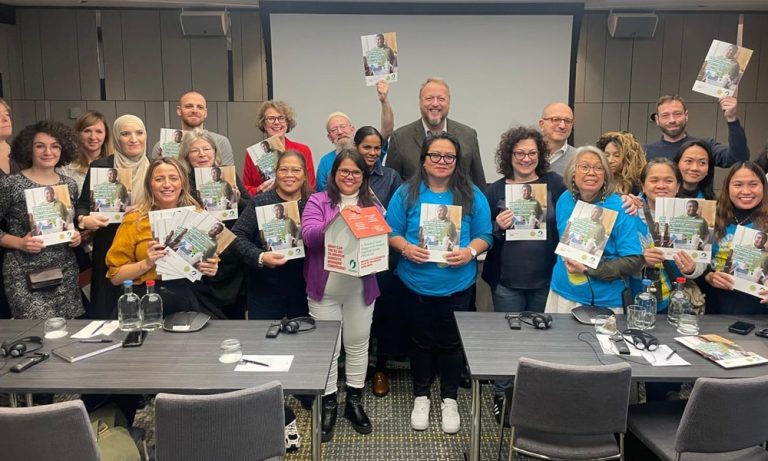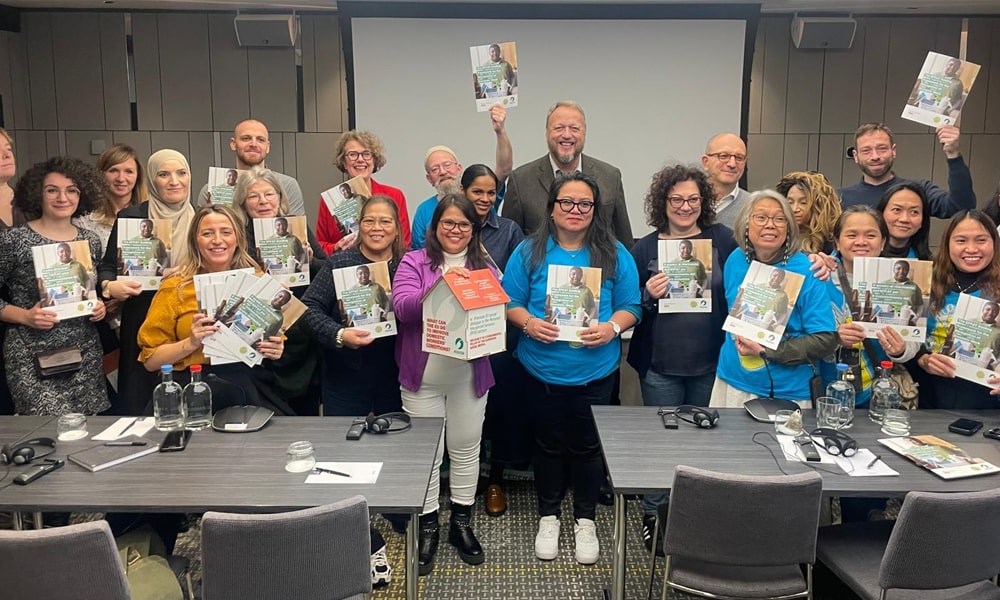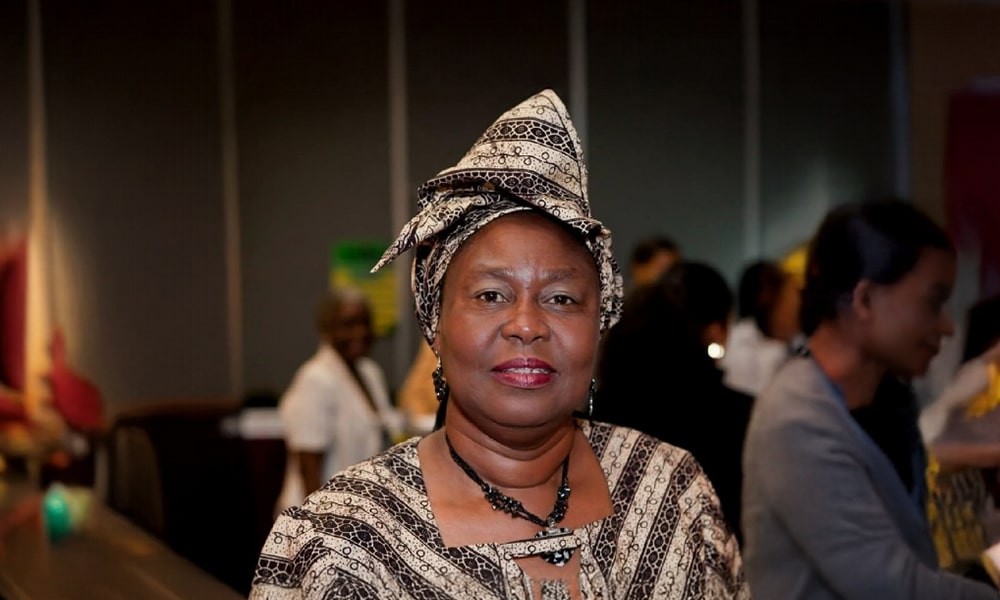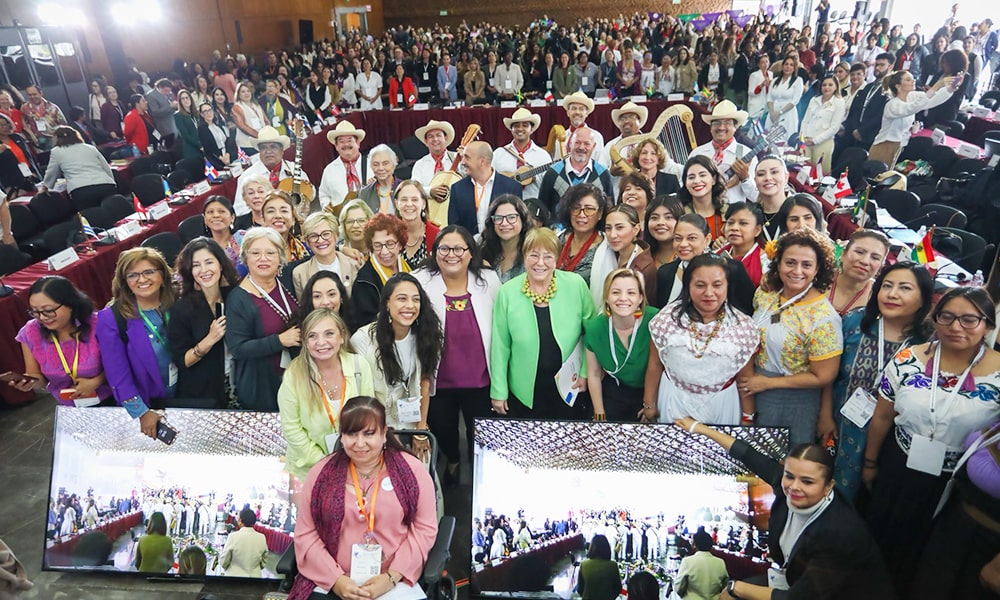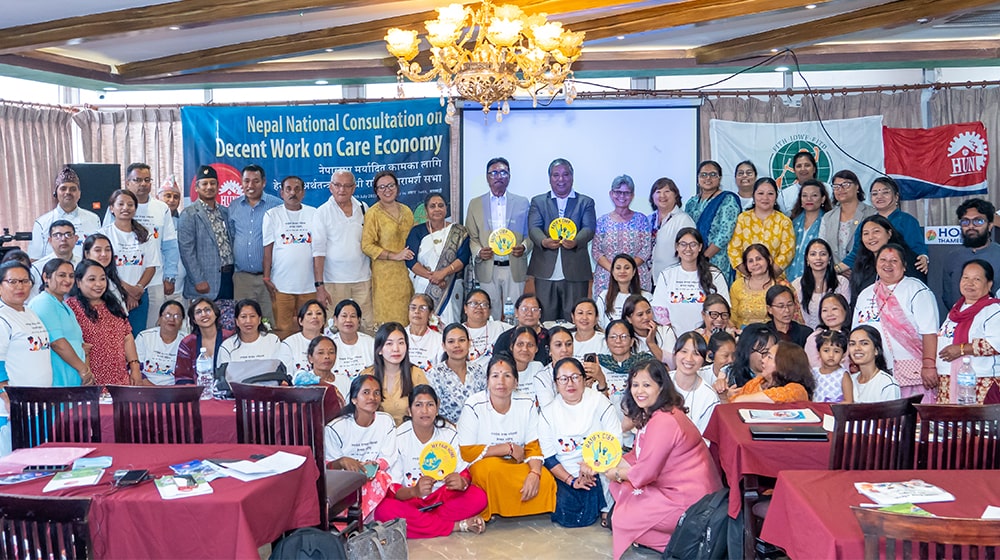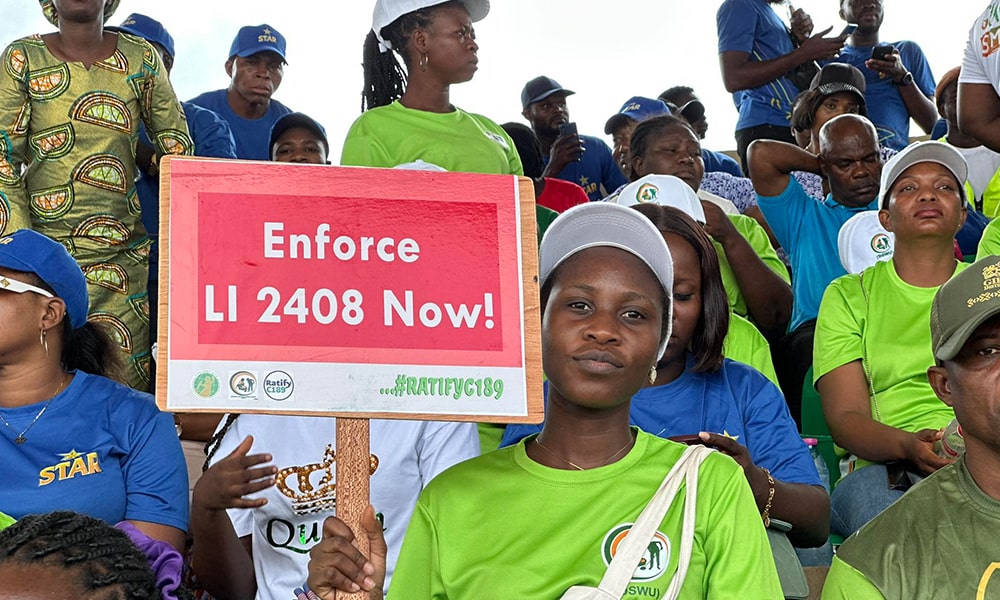
As a result of the sustained and creative advocacy efforts led by the Domestic Services Workers Union (DSWU) in Ghana, the Ministry of Employment and Labour Relations (MELR) has officially adopted a roadmap to implement the Labour (Domestic Workers) Regulations 2020 (L.I.2408), setting out two short-term priorities: to integrate domestic workers into the Ghana Labour Market Information System (GLMIS) and to enroll them in SSNIT, ensuring their access to social protection. This is a crucial step toward formalization and decent work for domestic workers in Ghana—and a concrete example of how strategic advocacy delivers tangible change.
L.I. 2408 was passed in 2020 to establish a governance framework for the regulation of domestic work, promote formalization, and ensure full labor protection for domestic workers. In practice, it brings domestic work squarely under Ghana’s labor law, spelling out minimum standards for employment, oversight by labour authorities, and clear remedies when rights are violated. Key provisions include:
- Written contract + registration: Every domestic worker must have a written contract, and the employer must deposit a copy with the District Labour Officer within one month of signing. The contract must spell out conditions of service: wages (and how/when they’re paid), working time, rest periods, leave entitlements, responsibilities, and any benefits-in-kind (which must be quantified in writing).
- Minimum wage and overtime: Pay cannot be below the National Daily Minimum Wage. Hours worked beyond the agreed schedule are overtime and must be paid accordingly. A worker cannot be required to perform overtime unless the contract sets a fixed overtime rate.
- Working time, rest, and leave: Domestic workers are entitled to at least eight consecutive hours of daily rest and at least twenty-four hours of weekly rest. They are also entitled to annual leave and maternity leave consistent with the Labour Act. Work on statutory public holidays is not required; if it occurs, it must be paid at double the normal wage.
- Social security and lawful deductions: The regulation ties employment to the national pensions system (SSNIT), enabling enrollment and authorizing only lawful deductions; it bars informal or unauthorized withholdings.
- Live-in standards: Where a worker resides in the employer’s home, the employer must ensure adequate living conditions—including privacy and security, access to toilet/bath, and adequate food if provided as part of the arrangement.
- Freedom of association and protection from abuse: L.I. 2408 recognizes union rights and collective bargaining, prohibits forced labor, and bans sexual harassment and domestic violence, establishing complaint pathways.
- Inspections, dispute resolution, and termination: District Labour Officers may inspect and intervene upon complaint, and the regulation outlines procedures for dispute resolution, unfair termination, and related remedies/compensation.
Even with this regulation in place, weak enforcement still leaves domestic workers exposed to poor working conditions and, too often, abuse and exploitation. In Ghana, domestic work remains overwhelmingly informal: there are an estimated 58,000 domestic workers nationwide, over 90% of whom are in informal employment. The new roadmap is a concrete step toward formalizing domestic work, strengthening a culture of compliance, and advancing the dignity of the women who sustain the country’s care economy. DSWU and the IDWF will keep up the advocacy to secure the prompt ratification of ILO Convention 189 by Ghana and to ensure that the rights enshrined in L.I. 2408 move from law to practice in domestic workers’ everyday lives.
“This achievement is not by chance. It is a direct outcome of strengthening our advocacy, engaging key stakeholders, and sustaining the momentum for change. We see this as a great step forward in ensuring decent work and dignity for domestic workers in Ghana. Together with the IDWF, we will continue the struggle until every domestic worker enjoys full rights and protections.”
Georgina Naa Anyema Collison, DSWU’s General Secretary

